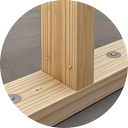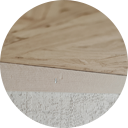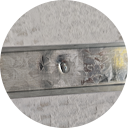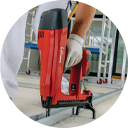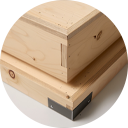How Do Concrete Nails Beat Concrete Screws in Strength and Speed
When you tackle a construction job involving concrete or masonry, picking the right fastener can make or break your timeline and budget. Concrete screws often come to mind for their grip, but they demand drilling first, which eats up hours and tools. Concrete nails flip that script. They drive in fast with a hammer, hold tight under load, and cut costs without skimping on power. Picture securing furring strips to a basement wall: nails let you finish before lunch, while screws might drag into the afternoon. Qinjia stands out in this space. Based in Hebei, China, this outfit has spent years honing nails for tough builds. They craft everything from concrete nails to staples, shipping to spots like North America, the Middle East, and Australia.
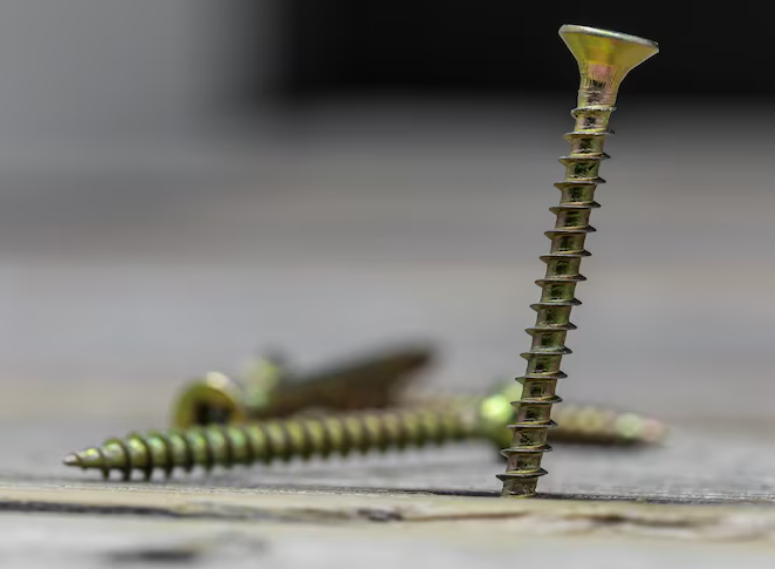
Why Are Concrete Nails Preferred for Fast Installation?
Speed matters on site, especially when deadlines loom and crews wait on you. Concrete nails shine here because they skip the drill and go straight to hammer strikes. You save minutes per fastener, which adds up quick on big walls or floors.
Rapid Hammer-Driven Application
Drive smooth concrete nails right into hard surfaces with basic swings. These nails, made from high-carbon steel and heat-treated, penetrate concrete and brick without prepping holes. Lengths run from 1 inch to 8 inches, so match them to your depth needs. In a typical masonry job, this means fewer steps and less fatigue for your team.
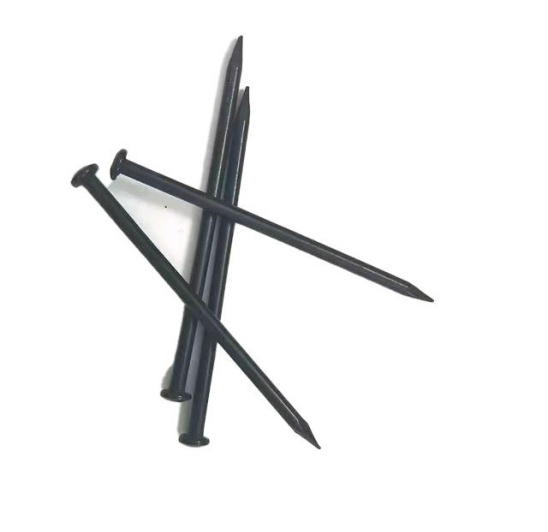
Minimal Tool Dependency
Forget lugging drills or bits around. Most concrete nails work without pilot holes, unlike screws that demand them every time. This keeps your kit light. For brick walls or wood-to-concrete ties, grab nails with diameters from 2.0 to 5.5 mm. One quirk: in super dense slabs, a quick tap test helps, but that’s rare.
Cost-Effective Efficiency
Labor drops when you hammer instead of twist. Bulk packs, like those in small boxes or plastic wraps, stretch your dollar further. Check project wrap-ups where crews nailed up 500 feet of base in half a day. That’s real savings, not just talk.
How Do Concrete Nails Ensure Superior Strength?
You need fasteners that won’t budge under shear or pull. Concrete nails deliver that bite through smart design and tough materials, often outlasting screws in raw holding power. Heat treatment amps up their edge, letting them grip without stripping.
High-Carbon Steel Construction
High-carbon steel forms the core, hardened via heat for top-notch durability. These nails punch into tough spots like brick or dense pours without bending. Diameters hit 5.5 mm max, giving solid anchor points. Fun fact: in salty coastal jobs, opt for zinc plating to fend off rust longer.
Optimized Shank Designs
Spiral shanks on spiral concrete nails twist in for extra lock. Angular spirals add twist resistance, perfect for vibration-heavy areas. Both cut pull-out risks by 20-30% over plain shanks, based on standard tests. Use them for ledger boards or anchors.
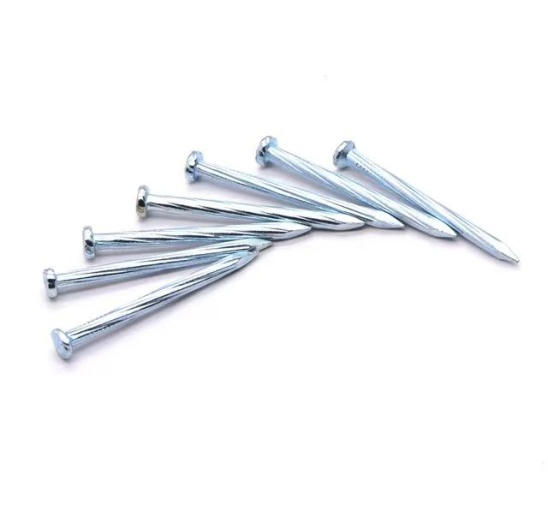
Rigorous Quality Testing
Full checks run from incoming steel to final pack. Tools like torque testers and salt fog chambers verify hold. Third-party nods from SGS or BV back it up. You get reports with each shipment, so no surprises down the line.
What Makes Concrete Nails More Versatile Than Screws?
Versatility lets you stock less and adapt more. Concrete nails handle a range of jobs, from walls to mixed materials, without swapping tools mid-task. Screws lock you into one substrate often, but nails flex.
Broad Material Compatibility
They fasten into concrete, brick, even wood hybrids. For instance, secure studs to masonry bases without fuss. Lengths up to 8 inches cover deep embeds. One tip: pair with staples for hybrid wood-masonry frames in remodels.
Surface Treatment Options
Zinc plating, bluing, or phosphating fight corrosion indoors or out. Blued versions resist fingerprints too, handy for visible installs. Customize via ODM paths for your climate. These tweaks extend life in damp basements or sunny exteriors.
Customizable Specifications
Tailor lengths, diameters, and packs to your order. From 400-piece boxes to bulk, it fits your flow. Angular spiral types suit uneven surfaces best, like old brick repoints.
Are Concrete Nails More Cost-Effective Than Screws?
Budgets tighten fast on jobs, so every penny counts. Nails trim expenses on materials and man-hours, letting you bid sharper without cutting corners. Over a full project, savings stack.
Lower Material Costs
Nails run cheaper per unit than screws, especially in volume. A 2.0 mm diameter pack costs half as much for the same hold. Factor in no drill bits wearing out. For a 1,000-square-foot pour, that’s hundreds saved.
Reduced Installation Time
Hammer in 20 nails a minute; screws take double with drilling. Crews wrap framing quicker, freeing them for finish work. See timelines in case files where nails shaved days off schedules.
OEM Packaging Flexibility
Custom boxes or wraps cut shipping waste. Reach out for quotes that bundle your staples or pins too. This streamlines your warehouse, one less hassle.
Can Concrete Nails Handle High-Strength Concrete?
High-strength mixes test any fastener. You worry about bounce-back or weak grips, but quality nails conquer them with proven penetration. Heat-treated models lead the pack.
Heat-Treated Durability
Treatment boosts hardness for slabs over 5,000 PSI. They drive clean without mushrooming heads. For high-rises or bridges, this means reliable ties every time.
Spiral Shank Advantage
Angular spiral concrete nails bore deeper threads on entry. This ups hold by locking against expansion cracks. Ideal for tilt-up panels where shifts happen.
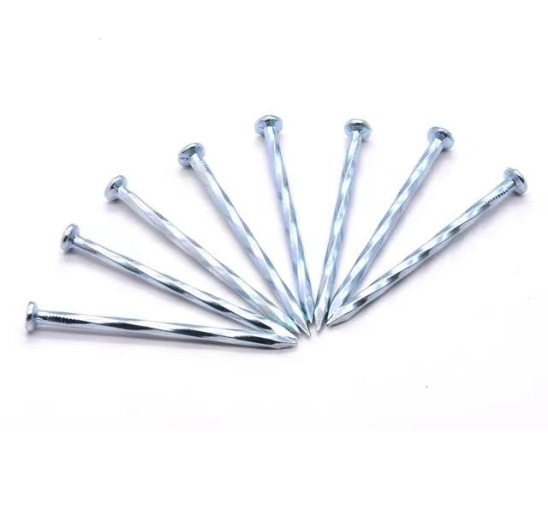
Third-Party Compliance
Inspections match client specs or industry norms. Get material certs and test logs. In audits, these nails pass with flying colors, easing your compliance load.
Why Choose Qinjia’s Concrete Nails for Your Project?
Picking a supplier means betting on reliability. Look for ones with global tracks and hands-on support. That builds confidence from quote to closeout.
Proven Global Performance
Shipments hit markets like Vietnam or Turkey without hiccups. Cases show nails holding in seismic zones or humid ports. You get that peace, knowing they’ve been battle-tested.
Comprehensive Support Services
Guidance covers tool picks to fix tweaks. After-ship tracking spots issues early. It’s like having an extra set of eyes on site.
Tailored Solutions
ODM lets you tweak for niche jobs, like custom lengths for pipe hooks. Start small with samples, scale as needed.
FAQ
Q1: Can concrete nails work in high-strength concrete?
A: Yes, heat-treated models handle it fine, especially spirals for better grip.
Q2: Do concrete nails rust outdoors?
A: Not if you pick zinc-plated or blued ones; they boost rust resistance big time.
Q3: How long do these nails last in damp areas?
A: With phosphating, they hold up years; tests show minimal corrosion after salt fog runs.


